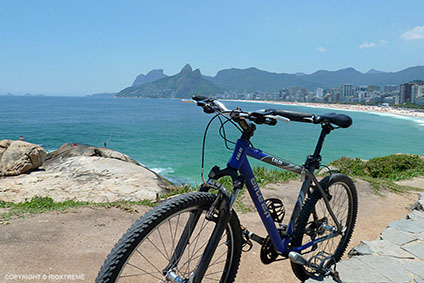How to transport yourself in Rio de Janeiro..
- By Metro
The Rio de Janeiro Metro has two lines that connect the north of the city (the most populous part) to the south, to Ipanema. Easy to reach by subway to the main monuments in the historic center, as some more distant as the Quinta da Boa Vista or the Maracana Stadium.
The metro is an option of fast, clean and safe transport, cars are modern and have air conditioning (on the green line often abuse it so you might even pass cold in summer).
Metro Timetable:
– Mon-Sat: 05:00 to 0:00
– Sun: 07:00 to 23:00
Single Ticket price (one-way):R $ 3.5
Some remote areas of the metro network, such as the Botanical Garden or Leblón have a bus shuttle service area called Metro Na, the ticket price is the same but make sure to purchase the correct one, that should read “Metro + Na Metro Area “.
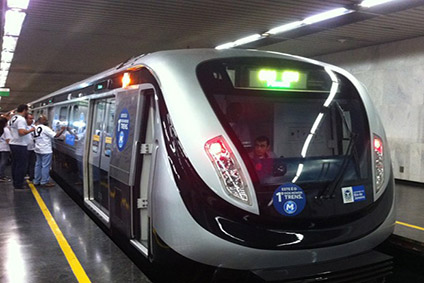
- By Train
There are very few passenger rail services in Brazil. A large portion of train services in the country are used for transporting cargo.
- Local trains: For regional transport to some metropolitan suburbs, small interior towns and the coast
- National trains: There are national trains between some cities in Brazil, but São Paulo is currently not served with a network that connects it to other cities outside of São Paulo state
- International trains: International connections by rail are not well served – of the ten countries that Brazil shares a border with, only three can be reached by rail transport (Argentina, Uruguay and Bolivia)
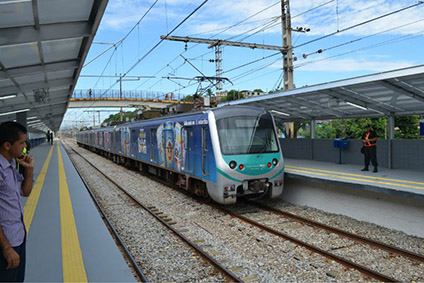
- By Bus
The city bus system in Rio de Janeiro called BRS is modern and has new vehicles with air conditioning, and go quite frequently, are inexpensive (R $ 3.15) and quite safe.
Both bus stops as the different lines are organized into BRS1, BRS2, BRS3, BRS4 and BRS5 groups, each bus indicates both their number and their group and only at the stop is due. For example the bus 162 that goes from the Leblon neighborhood of Lapa until BRS1 belongs to the group and you can only get at stops marked with this number.
Although it may seem confusing at first, it is actually very easy, the vast majority of buses run along the main avenues ranging from the historic center to the districts of the Southern Zone is not so difficult to get around the main tourist attractions. At each stop the list of buses that stop in it as well as the main milestones of his travels is clearly indicated, with particular reference to the monuments, churches, fortresses and other sights. The stops of different groups of buses are not very far apart.
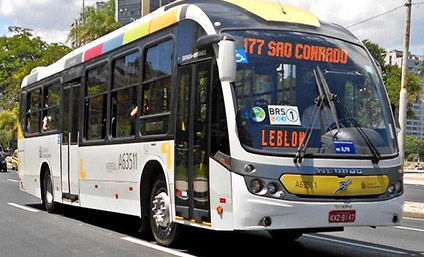
- By Taxi
There are about 32,000 taxis in Rio. Although the city has implemented free English classes to improve drivers’ language skills, most drivers speak no or very limited English.
Using a taxi:
A licensed taxi cab in Rio is called a yellow taxi, and to qualify, the vehicle must have the following features:
– Yellow vehicle with a blue stripe on the side
– A red-and-white licence plate
– An illuminated taxi sign on top of the vehicle
– A meter (sealed by the Instituto de Pesos e Medidas – IPEM)
Taxi fares are calculated per kilometre. A passenger has the right to require the driver to turn on the meter.
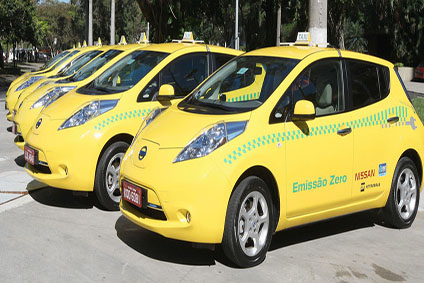
- By Bike
Rio de Janeiro has many kilometers of bikeways (bike lanes), especially around the Rodrigo de Freitas Lagoon and along the coast, from the Parque do Flamengo to Leblon and boardwalks in all of the beaches São Conrado, Recreio dos Bandeirantes and Barra da Tijuca, making it ideal to use for sports or bicycle as transportation city.
The striking oranges Bicycle Bike Rio, placed by Banco Itaú and the municipality of the city, with more than 60 stations and can be used by anyone. Foreigners may register with the number of his passport.
They can also rent bikes in the eastern part of the Rodrigo de Freitas Lagoon and Sunday in the coastal walk from the beaches of Copacabana and Ipanema, where vehicular traffic is restricted. In these two areas there are also some shops open daily rent. The price of these rentals is between R $ 10 and R $ 15 per hour.
